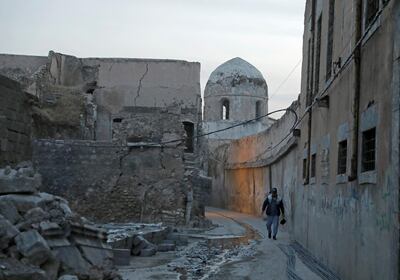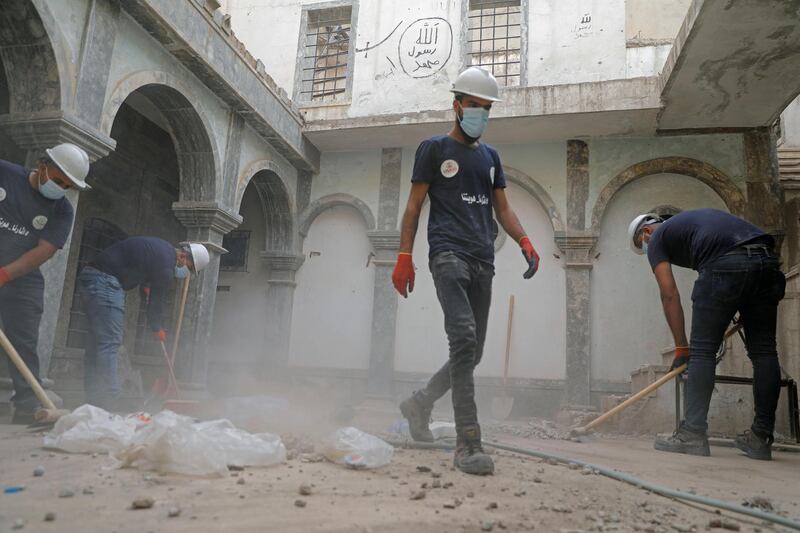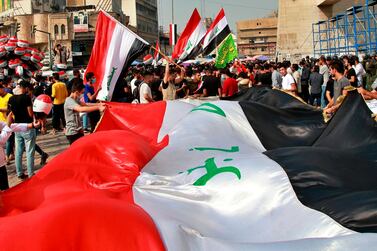When the black flags of ISIS stopped flying in Mosul in July 2017, two feelings prevailed. The first was relief following the city’s liberation, the second was determination to rebuild.
Today, this determination is achieving real results. As part of Unesco’s flagship initiative to “Revive the Spirit of Mosul”, we are launching an international architectural competition to rebuild one of the city’s most symbolic sites: Al Nouri mosque. Architects around the world now have a unique opportunity to help restore Mosul’s symbolic buildings – and help revive the spirit of the city itself.
Indeed, places like Al Nouri mosque, Al Hadba minaret and the churches of Al Tahera and Al Saa’a are so much more than stones. Dominating Mosul’s skyline, they are part of the city’s identity. Reconstructing these buildings is not just a question of restoring physical structures. It is also a question of rebuilding human lives. Mosul’s mosque, minaret and churches play a key role in cultural, social and economic well-being. By restoring these buildings, the city will create benefits for its people.
This is the goal of the project “Reviving the Spirit of Mosul by Rebuilding its Historical Landmarks”, funded by the UAE. Accompanying local residents and the Iraqi Ministry of Culture and Sunni Endowment, this initiative includes the restoration and reconstruction of Al Nouri mosque complex and Al Hadba minaret, as well as the rehabilitation of Al Tahera and Al Saa’a churches. It will create jobs, allowing young people to develop skills and contribute to social cohesion and community reconciliation, in Mosul and throughout Iraq.
Much progress has already been made. At Al Nouri mosque and Al Hadba minaret, documentation and assessments have been completed. The sites have been secured and rubble removed. Historical fragments have been collected, and the remaining structures have been stabilised. At Al Tahera church, rubble has been removed, fencing and security cameras have been installed and security guards have been employed. At Al Saa’a church, the site is currently being secured.

The next major milestone in this initiative is the international architectural competition to select the design of the Al Nouri complex. This includes conserving the prayer hall and integrating it into a new building. It also includes creating new buildings within the complex, rehabilitating some historic buildings, and landscaping the site. By creating new spaces for education, social and cultural activities, the complex will play much more than a religious role – it will serve the entire community.
Entries for this competition are now open. Architects from around the world can submit proposals, with the winner being announced in spring 2021. An international jury will select the winning design and four runners-up.
Today, we call on architects across the globe to take part in this competition, and contribute to the reconstruction of this important city. Mosul may have been destroyed by conflict, but its social, cultural and historical foundations remain. By building on these strengths, the city can drive its own renaissance. By rebuilding its monuments, the city can improve its people’s lives and livelihoods.
Noura Al Kaabi is the UAE Minister of Culture and Youth
Audrey Azoulay is the director-general of Unesco
Dr Hasan Nadhem is the Minister of Culture, Tourism and Antiquities of Iraq
Dr Saad Hameed Kambash is president of Sunni Endowments in Iraq






